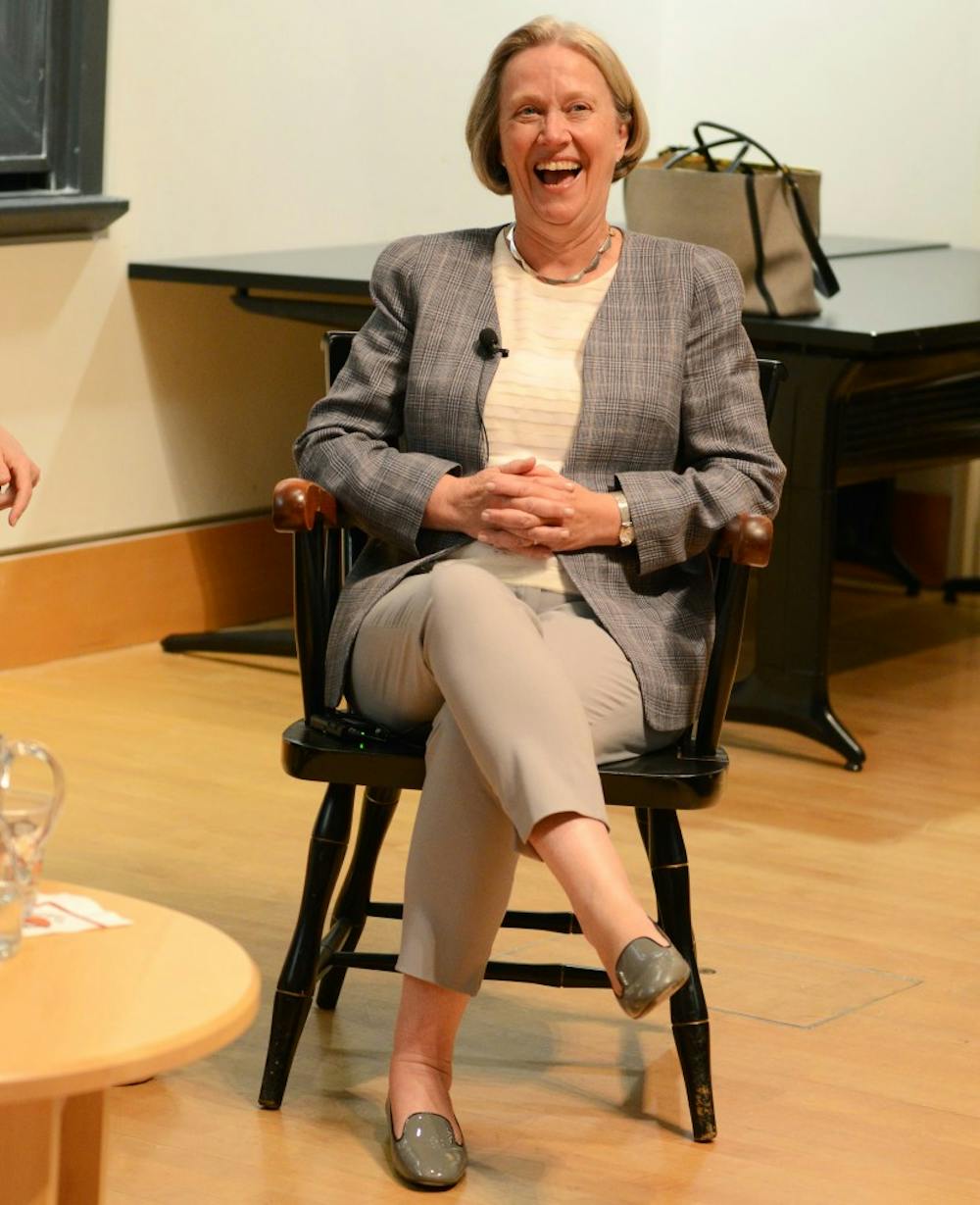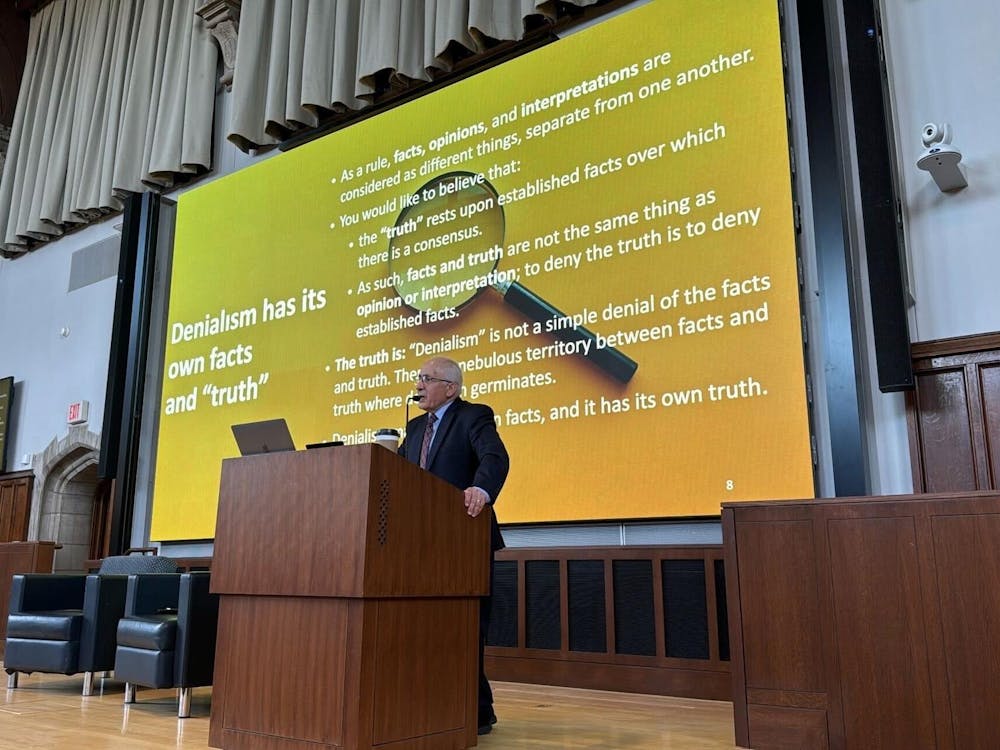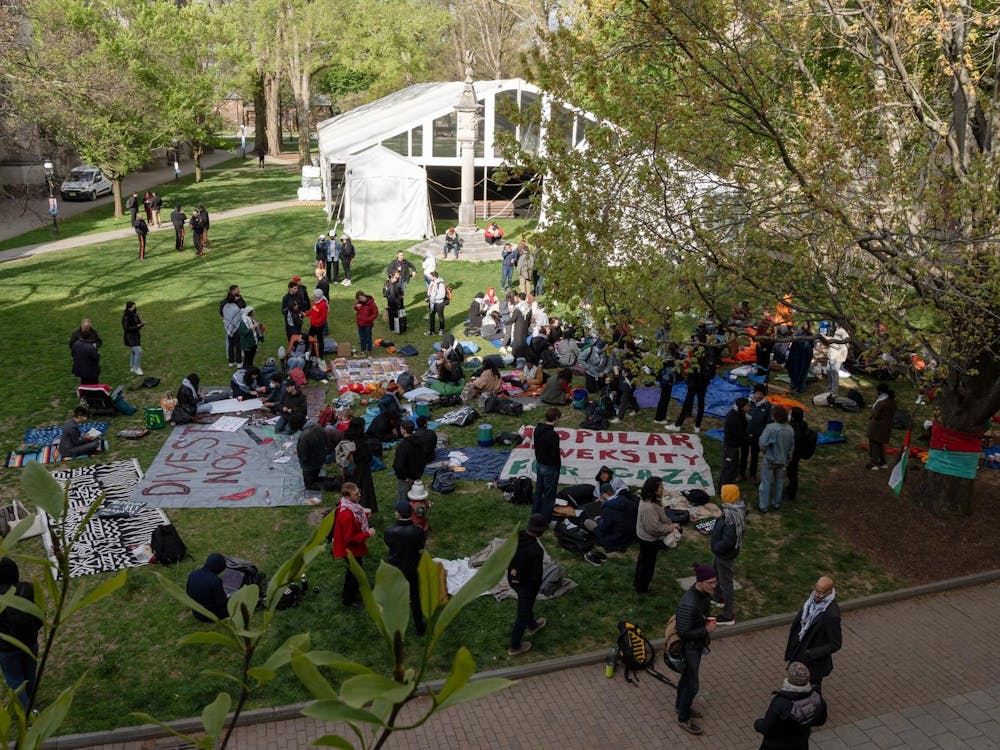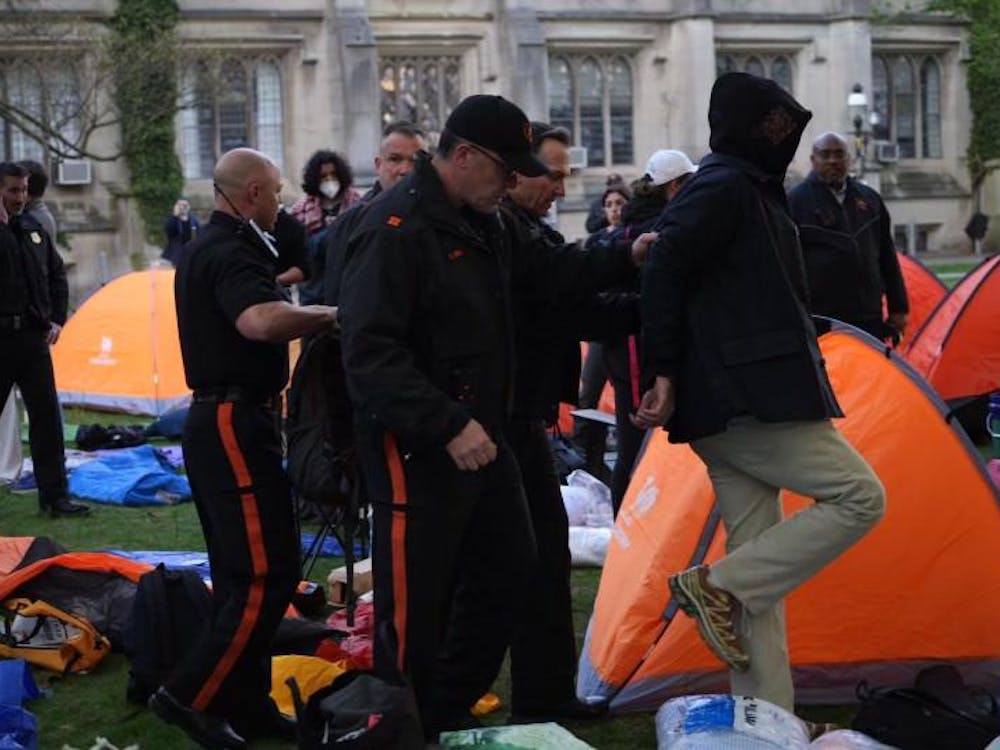The University’s high standings on rankings such as U.S. News and World Report does not mean Princeton should not pursue experimental teaching methods, former University President Harold Shapiro explained in a Sunday afternoon discussion onthe challenges facing higher education.
Four current and former college presidents, including Shapiro and former University president Shirley Tilghman, discussed the expansion of online courses, financial difficulties and inadequate rating systems. Rebecca Chopp, president of Swarthmore College, and Carmen Twillie Ambar, president of Cedar Crest College also participated. The panel was moderated by retired ABC News anchor and University trustee Charles Gibson '65.
The greatest threat to Princeton is becoming too complacent in light of its high ratings, Shapiro, who was president between 1988 and 2001, warned. “Nobody’s good enough to have so much self-confidence,” he said.
“People who are maybe not number one … have a lot more reasons to want to change and have less at risk when they want to change,” he said.
Panelists also discussed the prospects for higher education in the face of rising costs.
“Our greatest weakness is the financial sustainability issue,” Chopp said. “How can we afford a high quality product and bring down tuition, protect our endowment?”
On the other hand, Tilghman expressed concern for the declining funds universities can draw on to conduct the “cutting-edge research that has propelled the American economy.” While she said she does not believe that funding for research has reached a crisis point yet, Tilghman explained that diminished funding has pressured scientists to behave more conservatively and discouraged a new generation of scientists from pursuing science as a career.
“More and more of the responsibility of research is landing on the shoulders of the university, and yet fewer and fewer dollars are going to them,” Gibson noted.
Another effect of diminished research funds can be seen in the decline of published work in the humanities, Chopp explained, because university resources are being directed toward the hard sciences. Since reduced funding makes it more difficult for faculty to publish, it is now harder for Swarthmore to decide which faculty members will receive tenured positions, she said.
“Trends in higher education [are] forcing our faculty to be less expansive, less exploratory, less adventurous in the kind of research they are doing,” Chopp said.
As the president of a tuition-dependent women’s college, Ambar explained that Cedar Crest College faces a set of challenges different from those faced by Princeton, which is funded by its $16 billion endowment.
“We cannot ignore student choices. We have to be responsive to how students want to be educated, trying to keep the core of who we are,” Ambar said. As a result, Cedar Crest College has increased its use of small online courses taught by full-time faculty, she explained.

While a public university president was not on the panel, Tilghman said the rising price of higher education is spurred by defunding at the state level, which drains public institutions of the resources needed to provide quality education to students.
“The number of students we serve in this panel is miniscule, miniscule compared to the number of students being educated at the great state institutions, and they’re the ones who are under immense financial crisis,” Tilghman said.
Faculty tenure itself may face an uncertain future in American universities, the panel participants said. They all agreed that Americans generally disapprove of the idea of tenure.
Tenured positions are valuable to a university because they encourage committed faculty to contribute to the “shared government” of the university, rather than merely serving short-term interests, Ambar said.
“For me, the rationale for tenure is that it frees scholars to be risk-taking and bold in what they do,” Tilghman said, alluding to the example of mathematician Andrew Wiles, who spent seven years working on nothing but the once-thought-unsolvable Fermat’s Last Theorem.
The discussion took place in Friend Center 101 at 4 p.m. It was part of the Princeton Adult School 75th Anniversary Celebration Conversation, “Higher Education: Past, Present, Future.”









